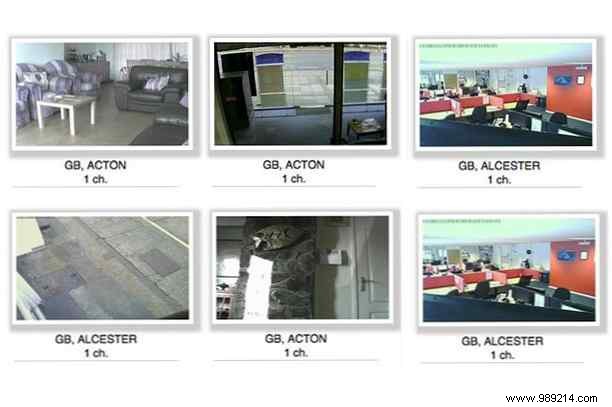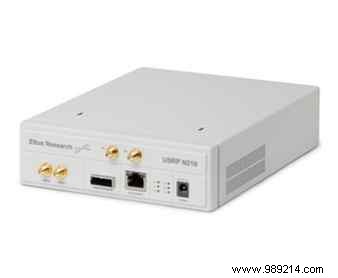The purpose of a home security system is to make you more secure. Unfortunately, it doesn't always work that way.
With more and more systems offering a “smart” feature, such as streaming video surveillance Tomorrow's Surveillance:Four Technologies the NSA Will Use to Spy on You, Tomorrow's Surveillance:Four Technologies the NSA Will Use to Spy on You:Surveillance is always at the forefront of technology. Here are four technologies that will be used to breach your privacy in the years to come. Read More>
The news is now full of stories of “failed” home security systems. It is a worrying problem; they can cost homeowners their money, their health, and their sanity.
Here we take a look at some of the most notable home security hacks - exploring what happened and why it happened...
In the fall of 2013, Washington State resident Leena Rawat and her family bought a new house that did not have an alarm system. Being security-conscious homeowners, they immediately went out and bought one, opting for Comcast's “penetration-proof” XFINITY Home Package.
The system is supposed to be part of Comcast's broader smart home offering, which allows users to control connected devices from a smartphone app. The home security system can send you real-time alerts when doors and windows are opened, can stream live video from inside or outside your home, and can even incorporate existing equipment.
The package is not cheap. Basic rates are $30 to $40 per month, and the early termination fee is $770.
Fast forward 12 months and her new family home became a house of horrors. The intruders entered through the basement window and the system did not activate any alarms. Leena's 18-year-old son was attacked while he was sleeping, leaving him with life-threatening injuries.
Further investigation found that Comcast did not install motion detectors in the basement window, but still shut down the system as a security. Comcast has a contract clause that releases them from any liability, but the Rawats are testing that in court.
This is far from Comcast's only catastrophe; In the middle of last year, a Houston family discovered that their Comcast alarm system had not been operational since 2007, even though they had been paying for it. Comcast's response? A $20 gift certificate.
Don't trust Comcast seems to be the most obvious point...
On a more serious note, this could happen to anyone. Whether you did a DIY installation, hired a professional security company, or hired an ISP, mistakes can happen and threats can be missed.
Once the home security system installation is complete, you need to test, retest, and retest. Check every window and every door and make sure the alarm sounds when it is broken. Then check your system at least once a month; you should check it as regularly as you test the batteries in your smoke detectors.
The Home Security Camera How to Build a Security Camera Network Using Old Smartphones How to Build a Security Camera Network Using Old Smartphones There is no better use of old smartphones than building your own network security camera system DIY. I need to know! Read More The market is exploding, leading to a number of lucrative security loopholes for criminals Viruses, Spyware, Malware, etc. Explained:Understanding Online Threats Virus, Spyware, Malware, etc. Explained:Understanding Online Threats When you start thinking about all the things that could go wrong when browsing the Internet, the web starts to seem like a pretty scary place. Read more . Evidence suggests that everything from laptop webcams to home CCTVs and smart baby monitors to intruder alert systems has been compromised.
The problem arises because many of the devices are configured insecurely due to manufacturer defaults, and owners never bother to change them.

For example, in late 2014, a Russian website was found hosting hundreds of live image feeds from UK homes and businesses; He had hacked the aforementioned devices. The website owner claimed that he was simply proving a point by using the default login credentials for the hacked cameras, credentials that are widely available online.
At the time, the UK Information Commissioner's Office said there were at least 35,000 exposed devices sold in the country in the previous 12 months.
It could easily become a big problem. Aside from the creepy nature of someone on the other side of the world watching your every move, think about how much personal information is visible. Android Users:How To Stop Giving Google Users So Much Personal Information Android:How To Stop Giving Google Users So Much Personal Information Android, by default, gives Google a lot of information. Here's how to get out of that trap. Read More Bank cards, driver's licenses and passports may be there, a camera facing your computer could reveal sensitive login data and passwords Password Management Guide Password Management Guide Don't be overwhelmed by passwords , or just use the same one on all sites so you remember them:design your own password management strategy. Read More
You have to take responsibility for your own safety. Always dig into the setup of a new system when you install it, even for something that seems as insignificant as a smart baby monitor. Failure to do so could make your home more insecure than if you hadn't purchased the system in the first place.
If in doubt about how to edit the settings, call the manufacturer's customer hotline. Alternatively, you can even ask one of our own experts!
On the surface, wireless alarms as part of a home security system seem like a great idea. They are free of the usual risks that come with wired systems (such as cutting phone lines and alarm lines), can be easily installed, and are not limited by wiring considerations. They are easily expandable and can be packed up and moved if you buy a new home.
However, there are still some inherent dangers to consider.
Although the devices are not connected to the Internet, they are not safe from hackers. Logan Lamb, a security researcher at Oak Ridge National Laboratory, conducted his own private investigation last summer and found that several major manufacturers, including companies that sell systems in the United States, can be easily compromised. Q>
The vulnerabilities arise from the reliance of all wireless alarm systems on radio frequency signals to communicate between the sensors and the central control system.
This leads to two main problems. First, because the systems were unable to encrypt or authenticate the signals, anyone could intercept and decrypt them and then play them back on the control system whenever they wanted. Second, the signals could be jammed to prevent them from triggering an alarm.

Lamb claimed that it could intercept signals and communicate with the central control system with its own $1,700 software-defined radio device (SDR) from a range of 250 meters, and that it could disrupt signals from about 10 meters.
He went on to say that even though a cheap Realtek SDR device ($10 at Amazon) couldn't send signals, he could still receive them and therefore give a thief a clear idea of when a window was left open or where in the house. home. The occupant was at a given moment..
There really isn't a clear winner in the wired vs. wireless alarm debate. They both have their pros and cons. The bottom line is that you shouldn't just install a home security system and assume you're covered.
Every system has its weak points, so protect against those weak points by installing secondary systems. Even more traditional methods of protection, like putting window guards on your windows or purchasing motion-sensitive outdoor lights, can be enough of a deterrent when used in conjunction with a good alarm system.
Have you been caught by your home security system? If You Were a Victim of a Crime From the Web to Jail:6 Types of Cyber Crime You Can Get Arrested For From the Web to Jail:6 Types of Cyber Crime You Can Get Arrested Because Governments Around the World Have Tried to dominating the Internet like a storm of new technology threatens everything from strict government censorship and control over the media to entrenched media conglomerates and old concepts of... Read More Perhaps you experience the opposite and your system has saved you from some potentially unpleasant consequences.?
Whatever your story, we'd love to hear it. You can let us know your thoughts and feedback in the comments section below.